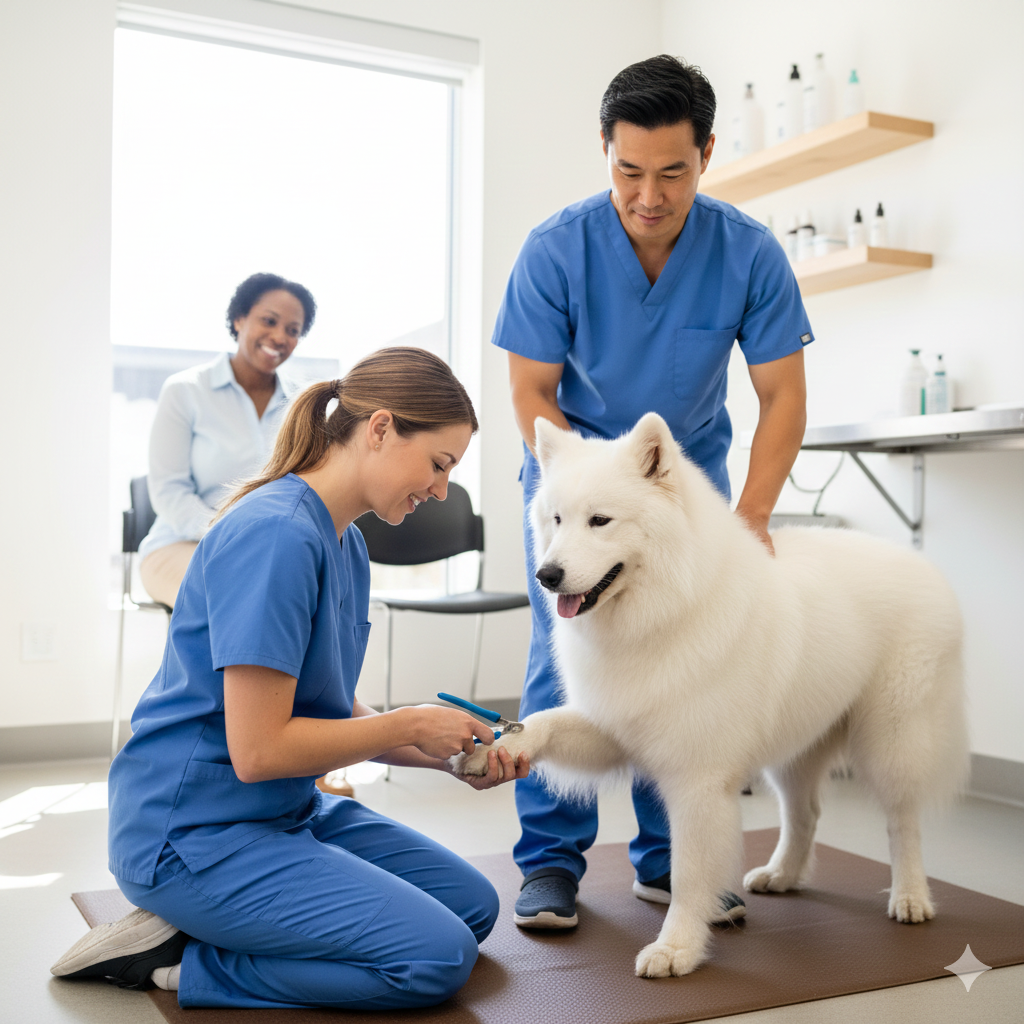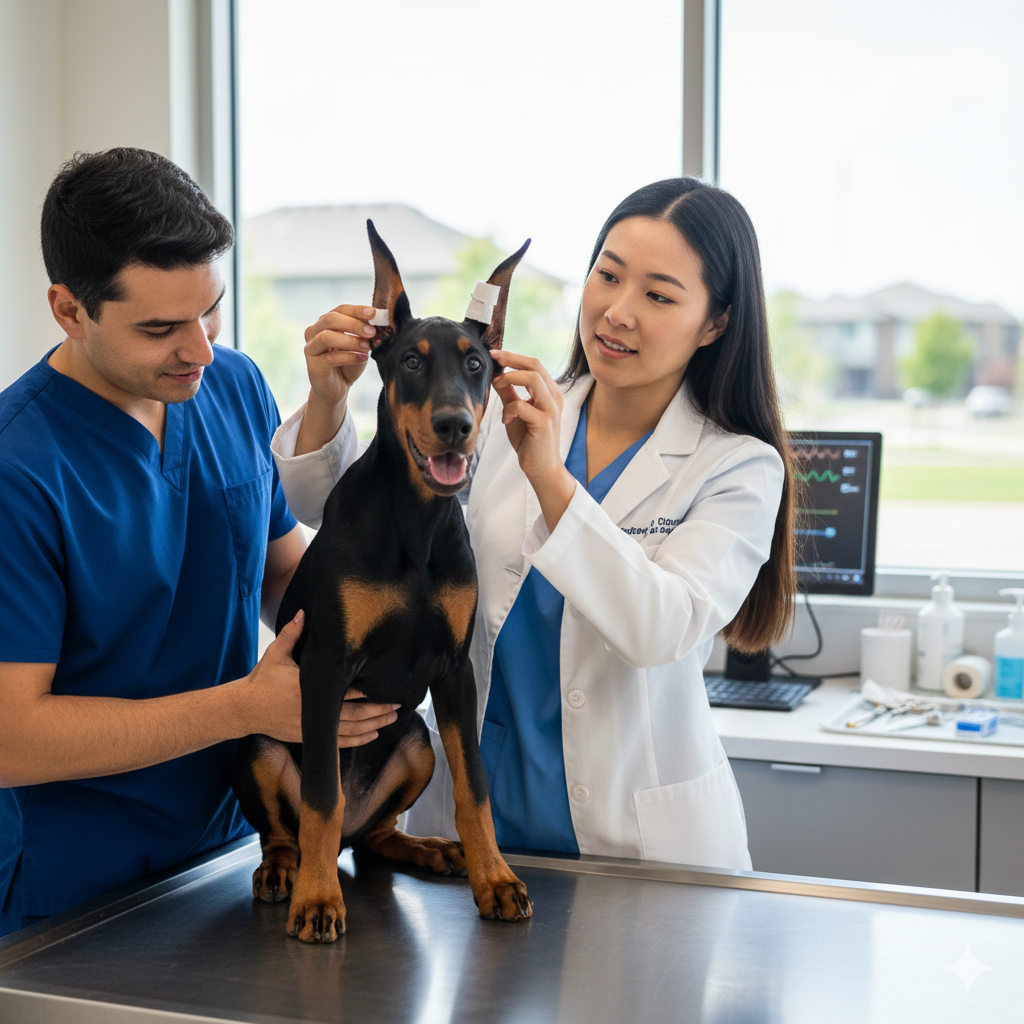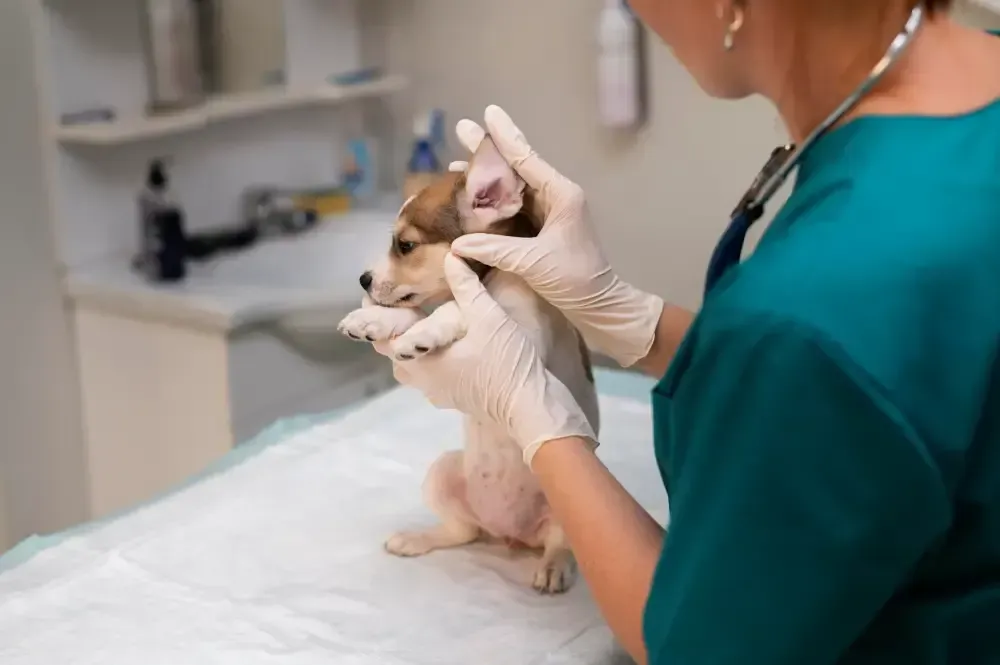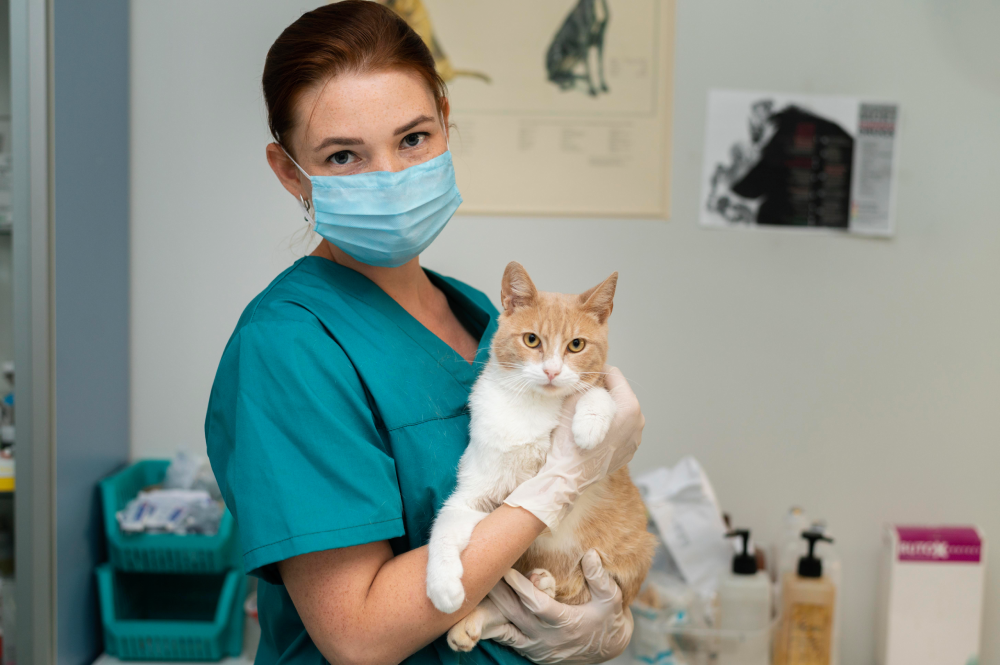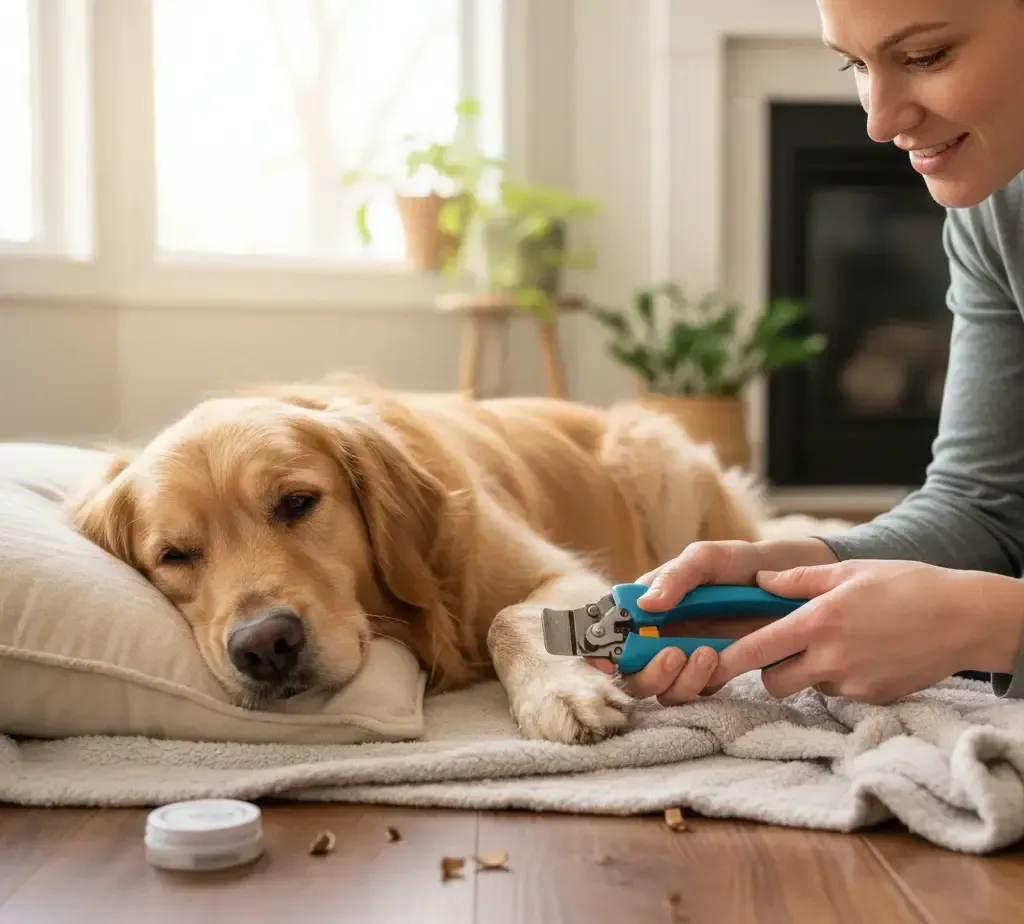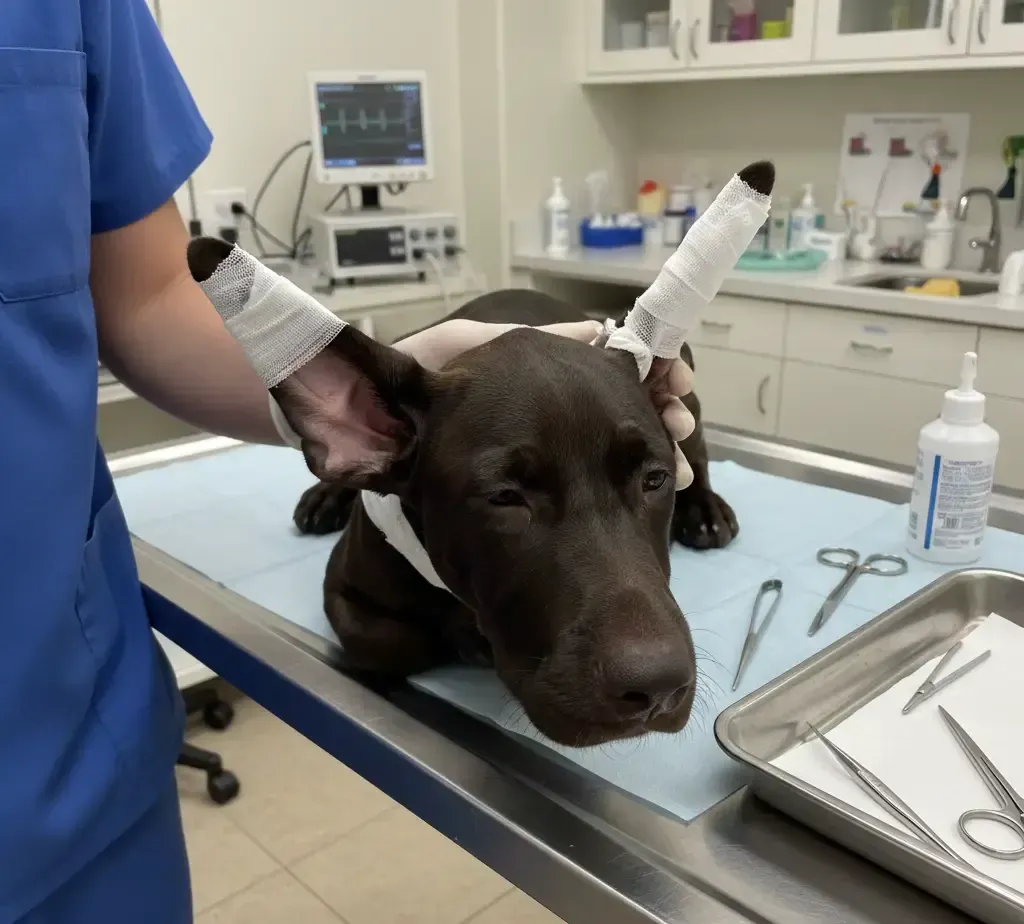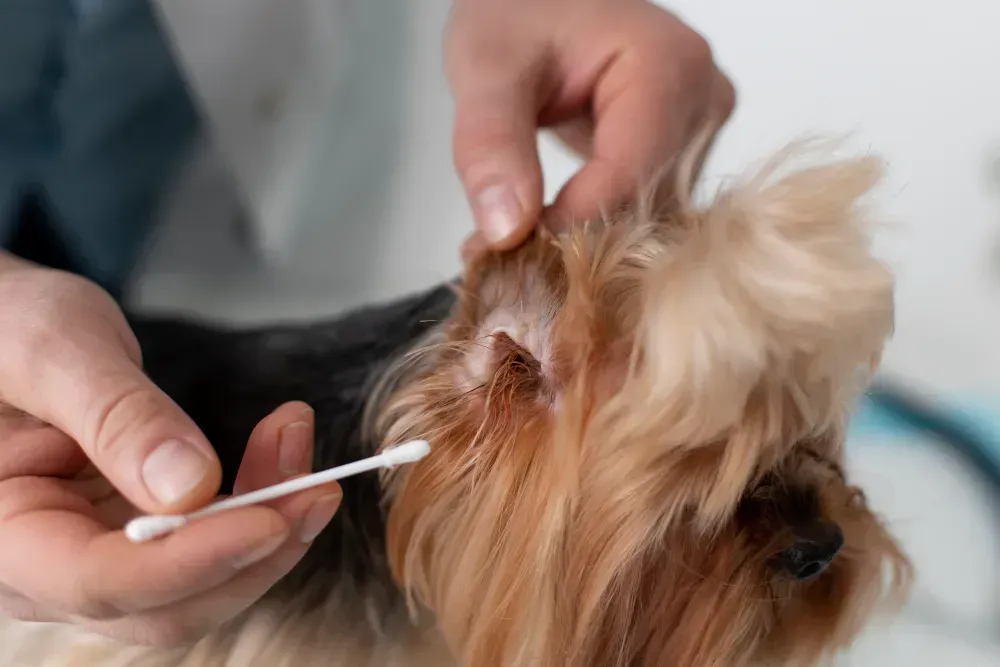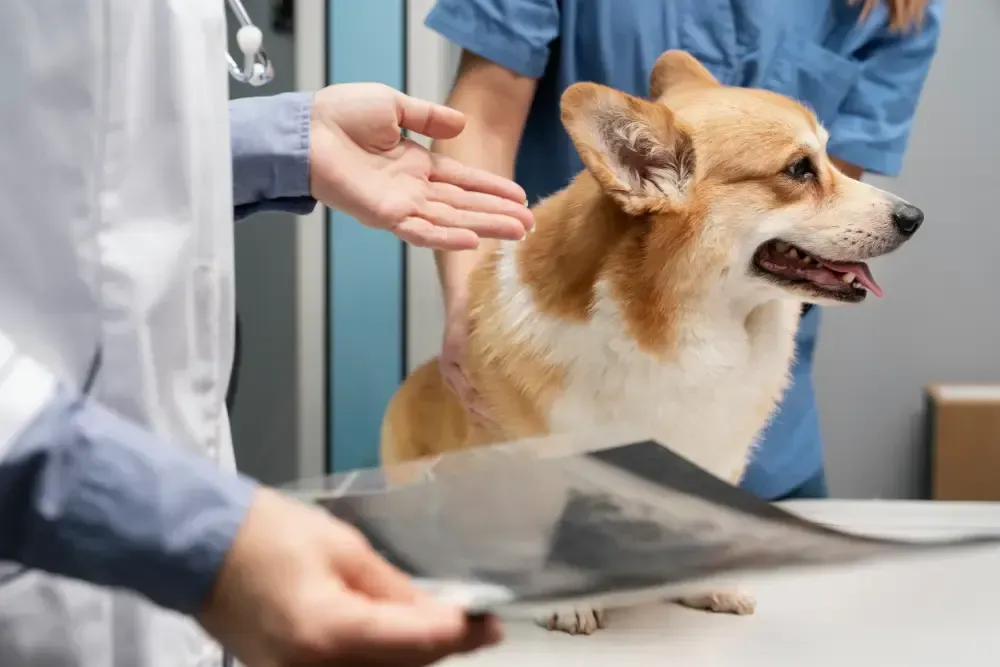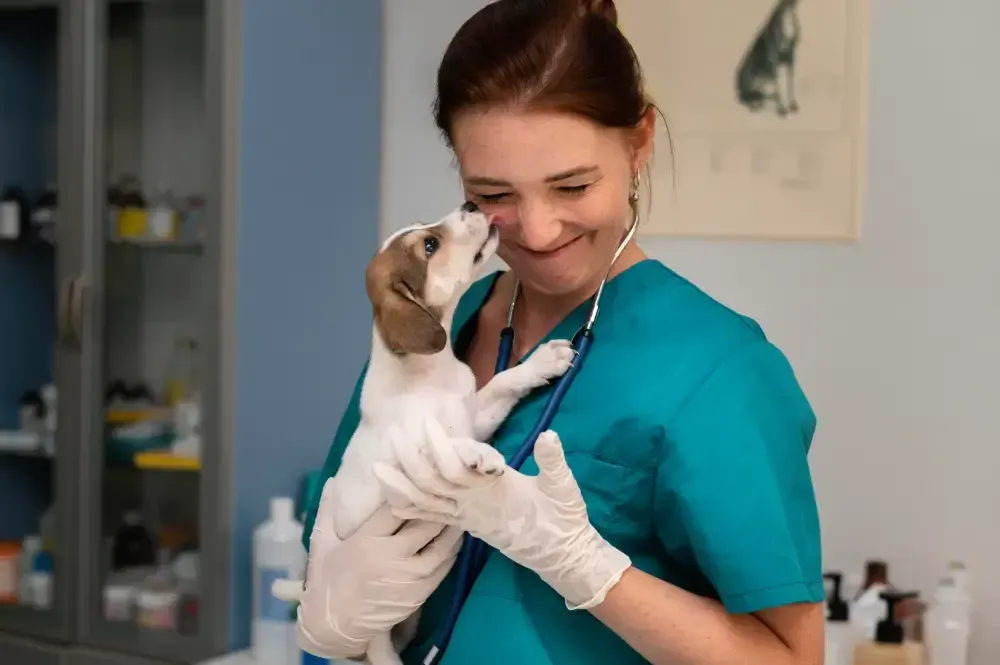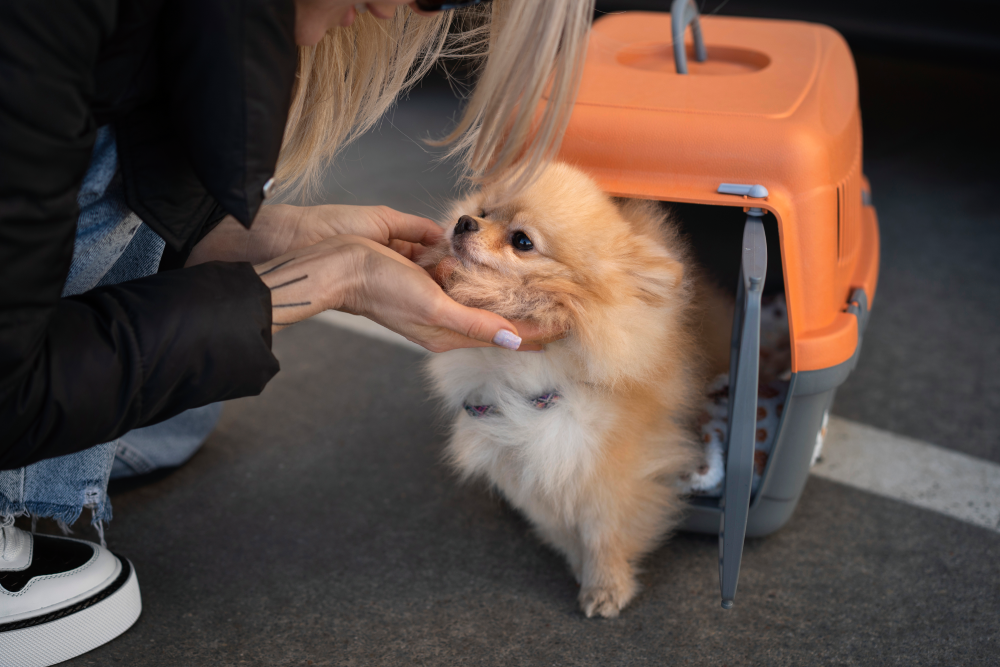By Michael Rayburn
•
July 22, 2025
When it comes to caring for your furry family members, nothing is more important than finding a veterinarian who provides both affordable and compassionate care. Normandy Animal Hospital is a trusted name in Jacksonville, offering a wide range of veterinary services designed to keep your pets healthy and happy. Whether you need routine check-ups, emergency care, or specialized treatments, our team of experienced veterinarians is here to support you every step of the way. For many pet owners, the thought of taking their beloved animal to the veterinarian can be stressful. Concerns about cost, wait times, and the quality of care are common. At Normandy Animal Hospital, we understand these worries and strive to make every visit as smooth and reassuring as possible. Our walk-in policy, affordable exam fees, and compassionate approach set us apart from other veterinary clinics. We believe that every pet deserves the best care, regardless of the circumstances. The role of a veterinarian is not just about diagnosing and treating illnesses—it’s about building lasting relationships with pets and their families. Our veterinarians take the time to listen to your concerns, answer your questions, and develop personalized treatment plans for each animal. Whether your pet is young or old, healthy or dealing with a chronic condition, our team is equipped to provide the care they need. With a focus on affordability and compassion, Normandy Animal Hospital is committed to making veterinary services accessible to everyone in the Jacksonville community. The Importance of Regular Veterinary Care Regular visits to your veterinarian are essential for maintaining your pet’s health and well-being. Just like humans, pets benefit from routine check-ups, vaccinations, and preventive care. These visits allow veterinarians to detect potential health issues early, before they become serious problems. At Normandy Animal Hospital, we encourage pet owners to bring their animals in for regular wellness exams, even if they appear to be healthy. During a wellness exam, your veterinarian near me will perform a thorough physical examination, check your pet’s weight, and discuss any concerns you may have. These appointments are also an opportunity to update vaccinations, discuss nutrition, and address behavioral issues. By staying proactive about your pet’s health, you can help them live a longer, happier life. Our veterinarians are trained to provide gentle, compassionate care, ensuring that your pet feels comfortable and secure during every visit. Affordable veterinary care is a cornerstone of our practice at Normandy Animal Hospital. We believe that cost should never be a barrier to quality care, which is why we offer a low exam fee for all pets. Whether you’re visiting for a routine check-up or an emergency situation, you can trust our veterinarians to provide the same level of attention and expertise. Our goal is to make veterinary services accessible to every pet owner, so you never have to choose between your pet’s health and your budget. Comprehensive Veterinary Services for Every Need Normandy Animal Hospital offers a full range of veterinary services to meet the diverse needs of pets and their families. From routine wellness exams to emergency care, our team is equipped to handle a wide variety of medical situations. Our veterinarians are skilled in diagnosing and treating common illnesses, performing surgeries, and managing chronic conditions. No matter what your pet needs, you can rely on our compassionate and knowledgeable staff. One of the many advantages of choosing Normandy Animal Hospital is our walk-in policy. Unlike many veterinary clinics that require appointments, we welcome walk-ins during our regular hours. This flexibility is especially helpful for busy families or those dealing with unexpected health concerns. Our veterinarians are always ready to provide prompt, compassionate care, whether your pet needs a simple check-up or urgent medical attention. In addition to routine and emergency care, we also offer specialized services such as dental care, surgery, and boarding. Our veterinarians use the latest technology and techniques to ensure the best possible outcomes for every patient. We understand that every pet is unique, which is why we take a personalized approach to treatment. Whether you’re a new client or a long-time member of our family, you can trust Normandy Animal Hospital to provide affordable, compassionate care for your pet. The Role of Compassion in Veterinary Care Compassion is at the heart of everything we do at Normandy Animal Hospital. Our veterinarians and staff are dedicated to treating every pet with kindness, respect, and understanding. We know that visiting the veterinarian can be stressful for both pets and their owners, which is why we go out of our way to create a welcoming, supportive environment. From the moment you walk through our doors, you will notice the difference that compassion makes. Our veterinarians take the time to get to know each pet and their unique needs. Whether your animal is shy, anxious, or dealing with a serious illness, we tailor our approach to ensure their comfort. We believe that compassionate care leads to better outcomes and stronger relationships between pets, owners, and veterinarians. At Normandy Animal Hospital, you can trust that your pet will always be treated like a member of the family. Affordable care and compassion go hand in hand at our clinic. We understand that pet owners often face difficult decisions about their animal’s health, especially when finances are a concern. That’s why we strive to keep our prices reasonable and transparent. Our veterinarians will always discuss treatment options and associated costs with you, so you can make informed decisions about your pet’s care. With our commitment to affordability and compassion, Normandy Animal Hospital is the ideal choice for pet owners who want the best for their animals. Emergency Veterinary Care: Always Here When You Need Us Emergencies can happen at any time, and when they do, it’s important to have a veterinarian you can trust. Normandy Animal Hospital offers emergency veterinary services during our regular hours, so you never have to worry about where to turn in a crisis. Our veterinarians are trained to handle a wide range of urgent situations, from accidents and injuries to sudden illnesses. No matter what the emergency, you can count on us to provide prompt, compassionate care. One of the things that sets Normandy Animal Hospital apart is our commitment to affordability, even in emergency situations. Our exam fee remains the same for emergencies as it does for routine visits, so you can get the care your pet needs without breaking the bank. Our veterinarians will assess your pet’s condition, discuss treatment options, and keep you informed every step of the way. We know how stressful emergencies can be, which is why we do everything we can to make the process as smooth as possible. Having a trusted veterinarian in your corner during an emergency is invaluable. At Normandy Animal Hospital, we’re proud to be that source of support for the Jacksonville community. Our team is always ready to provide the compassionate, expert care your pet deserves, no matter the circumstances. Whether it’s a minor injury or a life-threatening situation, you can trust our veterinarians to act quickly and thoughtfully. The Benefits of Walk-In Veterinary Services Walk-in veterinary services are a game-changer for many pet owners. At Normandy Animal Hospital, we understand that life can be unpredictable, and sometimes you need to see a veterinarian nearby right away. That’s why we offer walk-in hours every day of the week, including weekends. Whether your pet is due for a routine check-up or experiencing an unexpected health issue, our veterinarians are here to help. The convenience of walk-in services means you don’t have to wait days or weeks for an appointment. Our veterinarians are always ready to provide compassionate care, no matter when you arrive. We also offer drop-off services for pets who may be stressed by waiting in the clinic. Simply bring your pet in during our drop-off hours, and our team will take care of the rest. This flexibility makes it easier than ever to get the affordable, high-quality care your pet deserves. Choosing a veterinarian who offers walk-in services can make a big difference in your pet’s health and well-being. At Normandy Animal Hospital, we’re committed to making veterinary care accessible and convenient for everyone. Our veterinarians are dedicated to providing compassionate, expert care, whether you’re visiting for a routine check-up or an urgent concern. With our walk-in policy and affordable prices, you can trust that your pet will always be in good hands. The Importance of Preventive Care Preventive care is one of the most important aspects of keeping your pet healthy. Regular visits to your veterinarian can help catch potential health problems early, before they become serious or costly to treat. At Normandy Animal Hospital, our veterinarians emphasize the importance of preventive care, including vaccinations, parasite control, and dental health. These simple steps can go a long way in ensuring your pet’s long-term well-being. During a preventive care visit, your veterinarian will perform a thorough physical exam, update any necessary vaccinations, and discuss ways to keep your pet healthy at home. We will also provide recommendations for diet, exercise, and grooming. Our goal is to help you give your pet the best possible life, and preventive care is a key part of that. With our affordable exam fees and compassionate approach, there’s no reason to skip these important visits. Preventive care isn’t just about preventing illness—it’s also about building a strong relationship with your veterinarian. At Normandy Animal Hospital, we believe that every pet deserves personalized, compassionate care. Our veterinarians take the time to get to know you and your pet, so we can provide the best possible advice and treatment. Whether you’re a new client or a long-time member of our family, you can trust us to keep your pet healthy and happy. The Role of Veterinarians in Pet Nutrition Nutrition plays a critical role in your pet’s overall health, and veterinarians are uniquely qualified to provide guidance in this area. At Normandy Animal Hospital, our veterinarians can help you choose the right food for your pet’s age, breed, and health status. Whether your pet has special dietary needs or simply needs advice on maintaining a healthy weight, we’re here to help. During your pet’s routine check-up, your veterinarian will discuss nutrition and make recommendations based on their specific needs. We understand that every pet is different, and what works for one animal may not work for another. Our compassionate approach ensures that you receive personalized advice tailored to your pet’s unique situation. Affordable veterinary care means you can get the guidance you need without worrying about the cost. Choosing the right veterinarian for your pet’s nutritional needs is an important decision. At Normandy Animal Hospital, our veterinarians are committed to providing expert, compassionate care at a price you can afford. Whether you’re dealing with a picky eater, a pet with allergies, or simply want to ensure your animal is getting the best possible nutrition, we’re here to help. Our goal is to make veterinary services accessible to everyone, so you can give your pet the healthy, happy life they deserve. Pet Dental Care: An Essential Part of Veterinary Services Dental health is often overlooked, but it’s a critical part of your pet’s overall well-being. Poor dental hygiene can lead to serious health problems, including heart disease and kidney issues. At Normandy Animal Hospital, our veterinarians offer comprehensive dental care, including cleanings, extractions, and preventive treatments. We believe that affordable dental care should be available to every pet, so we keep our prices reasonable and transparent. During a dental exam, your veterinarian will check for signs of gum disease, tooth decay, and other oral health issues. We will also provide recommendations for at-home dental care, such as brushing and dental chews. Our compassionate approach ensures that your pet feels comfortable and safe during every visit. With our affordable veterinary services, you can rest assured that your pet’s dental health is in good hands. Choosing a veterinarian who offers dental care is an important part of keeping your pet healthy. At Normandy Animal Hospital, we’re committed to providing expert, compassionate dental care at a price you can afford. Whether your pet needs a routine cleaning or more advanced treatment, our veterinarians are here to help. With our focus on affordability and compassion, you can trust us to keep your pet’s smile bright and healthy. Boarding Services: Safe and Compassionate Care When You’re Away When you need to travel or be away from home, finding a safe, comfortable place for your pet to stay is essential. Normandy Animal Hospital offers boarding services for cats and dogs, so you can have peace of mind knowing your pet is in good hands. Our veterinarians and staff provide compassionate care, ensuring that your pet feels secure and well-cared for during their stay. Before boarding, we require up-to-date vaccinations and a recent health exam to ensure the safety of all our guests. Our affordable boarding rates and compassionate approach make it easy to give your pet the care they deserve, even when you’re not there. Whether you’re going on vacation or just need a place for your pet to stay while you’re at work, Normandy Animal Hospital is here to help. Choosing a veterinarian for boarding services is an important decision. At Normandy Animal Hospital, our veterinarians are committed to providing safe, compassionate care for every pet. With our affordable prices and focus on comfort, you can trust us to take care of your furry family member. Our goal is to make veterinary services accessible to everyone, so you can enjoy your time away knowing your pet is in good hands. The Value of Building a Relationship with Your Veterinarian Building a strong relationship with your veterinarian is one of the best things you can do for your pet’s health. At Normandy Animal Hospital, we believe that every pet and owner deserves personalized, compassionate care. Our veterinarians take the time to get to know you and your pet, so we can provide the best possible advice and treatment. Whether you’re dealing with a chronic illness, a sudden emergency, or just routine care, we’re here to support you every step of the way. Affordable veterinary care is a cornerstone of our practice, but compassion is what truly sets us apart. Our veterinarians are dedicated to treating every pet like a member of the family, ensuring that they feel safe, comfortable, and loved. We understand that pets are more than just animals—they’re cherished companions who bring joy and comfort to our lives. That’s why we’re committed to providing the best possible care, no matter what your pet needs. Choosing a veterinarian is an important decision, and at Normandy Animal Hospital, we’re proud to be a trusted partner in your pet’s health. Our affordable, compassionate approach makes it easy to get the care your pet deserves, whether you’re visiting for a routine check-up or an urgent concern. With our walk-in policy, flexible hours, and commitment to quality, you can trust that your pet will always be in good hands.
